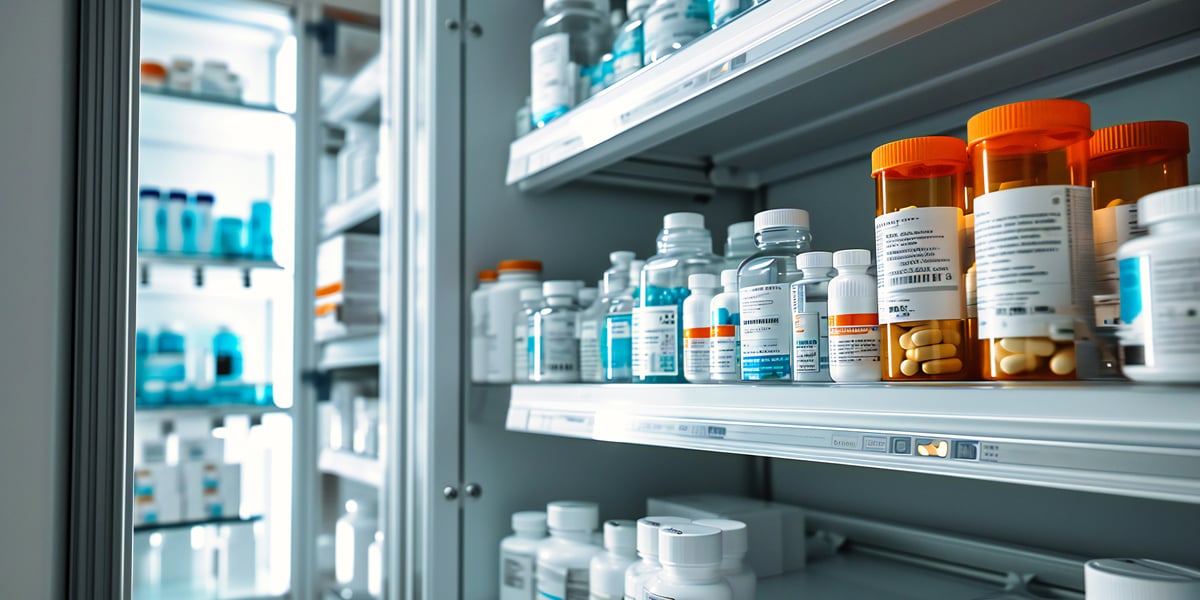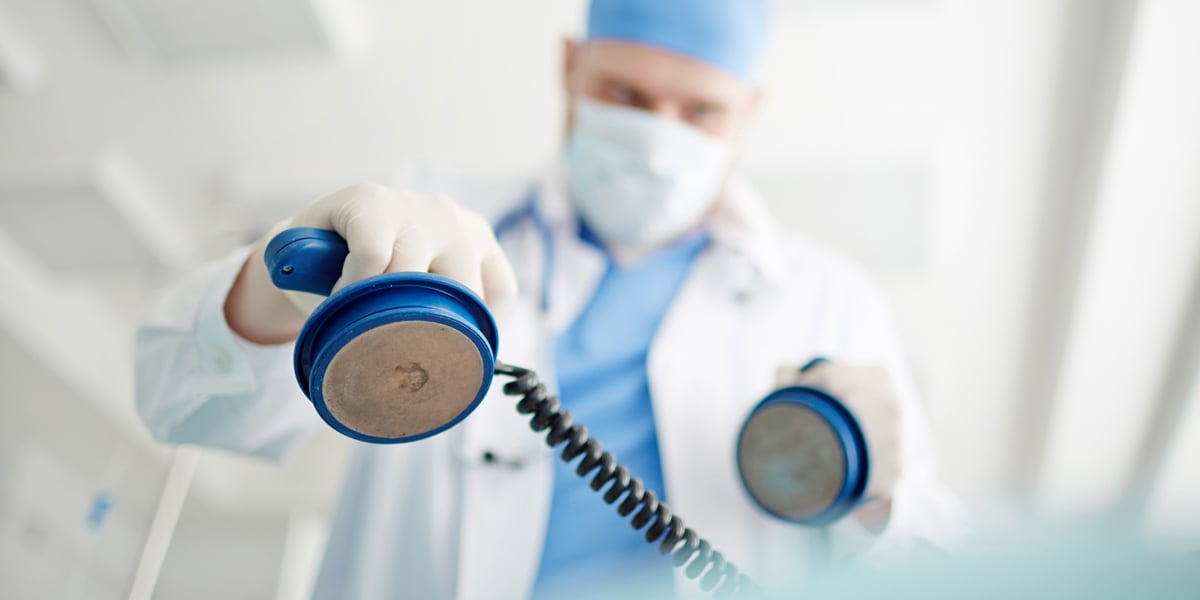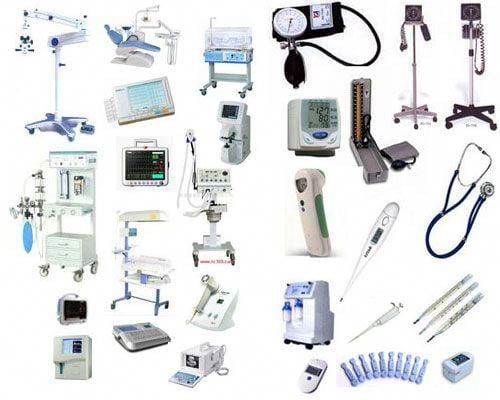Medical Supplies For Colleges Schools
The Back-to-School Medical Shopping List for Schools and Universities
Your wellness centers treat several conditions, especially those that students can't handle alone. The medical center might be the first place they go when they need medical attention. Having the right supplies can help you meet student needs and boost health on campus.
Keep reading to discover what supplies colleges need for health centers so you know what to invest in to protect your students and medical professionals this semester.
Essential All-Purpose Medical Supplies to Give Students
When you want to promote better health on your university campus, you can prepare students with college flu season aids. Compile kits of medical supplies and over-the-counter medications so they can take care of themselves as the semester progresses.
Medical Supplies
Your students face several health risks every day on campus, from cuts and scrapes to the common cold and flu. Your provided health center medical supplies should address most needs for a more comprehensive resource that students can use for every situation.

Some medical supplies you should consider adding include:
- Thermometer: Digital thermometers make it easy for students to check their temperature from their dorms or apartments. When students know they have a fever, they can sooner seek medical attention and start recovering. A classic under-the-tongue model can ensure students have a reliable and accurate tool to refer to when they feel unwell.
- Hand sanitizer: Students can use hand sanitizer in many ways. When treating a cut or scrape, they can use it on their hands to kill germs and decrease their risk of infection or contamination. They can also use it daily to protect themselves from germs on campus, keeping them safer. Consider offering a large bottle and a portable container in your first aid kits for optimized use.
- Band-Aids: Whether playing games on the quad or running late to class, students can encounter cuts and scrapes throughout their daily lives. When compiling your first aid kits for students, include several adhesive bandage sizes to accommodate different types of injuries. You can even throw in specialized types, like waterproof and blister bandages.
- Elastic bandages: In addition to adhesive bandages, elastic bandages help stop bleeding and swelling when wrapped tightly around wounds. They can be great for larger injuries that standard adhesives can't cover, helping students protect themselves from germs. Students can also use them to hold ice or hot packs in place to soothe hard-to-reach areas.
- Disposable masks: Disposable masks are essential when students have to navigate through campus to reach your wellness center while experiencing possibly contagious symptoms. The mask reduces airborne particles shared through breathing, coughing and sneezing, preventing the risk of the flu or COVID-19 spreading. Disposable masks can encourage students to safely leave their rooms to seek the medical attention they need to recover.
- Disposable gloves: Disposable gloves can offer several functions to students. They are great for when they need to clean wounds or surfaces and want to prevent substances from spreading. The gloves protect the hands and skin from contacting fluids, chemicals and germs. Like masks, students can use them to get around when contagious to reduce the germs they leave behind. Because latex allergies are common, consider offering non-latex options or using an alternative for all kits.
- Antiseptic wipes: Equipping your students with enough cleaning materials can help them carefully address cuts and scrapes. Antiseptic wipes can kill bacteria and prevent growth around open wounds in a straightforward way.
- Rubbing alcohol: Like other cleaning materials, rubbing alcohol can effectively clean cuts and scrapes. This cleaning method can also help students sanitize surfaces. Students can use rubbing alcohol to clean thermometers or tweezers before and after use to kill germs.
- Cotton balls: If you include liquid antibacterial cleaning methods, you will need to provide something students can clean with. Cotton balls can give students a safe, hygienic way to clean cuts, scrapes and blisters.
- Gauze pads: Gauze can help provide padding for cuts and scrapes to help stop bleeding. Materials like gauze pads and rolls give students more control over their health and safety, especially when you offer them alongside elastic bandages.
- Medical tape: Medical tape can help keep materials in place, from elastic bandages to band-aids.
- Instant ice packs: Whether students burn themselves while cooking or pull a muscle exercising, ice packs can address several essential needs. Instant ice packs are great first-aid additions because they don't need to freeze before use — your students just have to crack them to activate the cold. This tool can offer students immediate comfort while freeing space in minifridges and shared kitchens. They are single-use items, so you can better help students by providing several in their health kits.
- Pulse oximeter: Pulse oximeter measures oxygen levels in the blood. While medical professionals and students can use pulse oximeter information for several reasons, they are especially handy when monitoring COVID-19 symptoms. Help students understand how to use their pulse oximeter by providing a list of ideal blood oxygen ranges in kits.
- Tweezers: Students can use tweezers to dislodge splinters, insect stingers and ticks from their skin with the precision they need. Untreated substances or foreign objects under the skin can cause infections and make students sick. Providing students with the necessary preventive tools can keep them healthy to focus on their studies.
Medications

Whether you build the most comprehensive first-aid kit to provide students keep in mind that medications may help keep students healthy and ease pain when sick or injured. Some common medications you can find in medical kits include:
- Anti-inflammatory: Anti-inflammatory medications help lower fevers and relieve aches. These medications have many names that students can research or recognize, including Tylenol, Motrin, ibuprofen and acetaminophen.
- Antibiotic cream: To treat cuts, scrapes and blisters, antibiotic cream can prevent bacteria from forming and causing infections. Most medical kits include a small tube for students to tuck into bandage boxes for easy access.
- Cough and cold medicine: When flu season rolls around, cough medicine can help students rest and recover. These medications come in pill and liquid form and can ease cough, congestion and sneezing. Students can also explore grocery and convenience stores to find a specialized form that treats their exact symptoms.
- Allergy medications: Antihistamines help reduce symptoms of seasonal allergies, including coughing, sneezing and itchiness. While they might seem similar to cold medicines, they are better for less severe symptoms and cases, helping prevent discomfort and sinus problems.
- Eye drops: Eye irritation can distract students and become uncomfortable. Including eye drops can reduce itchiness and irritation for healthier eyes.
- Hydrocortisone cream: This skin cream helps reduce minor reactions to bug bites, stings and rashes to increase comfort and assist recovery.
- Hydrogen peroxide: For another way to clean open wounds, hydrogen peroxide can be a helpful substance.
COVID-19 and Flu Season PPE Supplies for University Clinics
Equipping your students with the right tools and resources can help prepare them for maintaining their health this semester, but it should also keep your on-campus medical professionals safer. Personal protective equipment (PPE) can protect nurses and staff from sick students, especially during the flu season when more students get sick with contagious strains.
Some PPE medical supplies for wellness centers include:
- Masks
- Gloves
- Disinfectants and cleaning supplies
- Hand sanitizer
During flu season or COVID-19 outbreaks on campus, PPE can help medical staff continue offering the best services for students. Sickness surges can mean your center sees higher traffic than usual, exposing your team to more germs. Investing in quality PPE and cleaning supplies can decrease the risk of getting sick so you can keep your clinic open and continue treating the student body.
Wellness Center and Medical Consumables for Colleges
When determining what to stock in wellness centers on campus, consumables can help you maintain functionality throughout the semester. Consumables are materials you use once, meaning you will need to invest in enough to last through the semester or flu season. Knowing what you'll need can help you better prepare for your students' needs.
1. Ice Packs
Ice packs can help treat several injuries, including pulled muscles and extensive bruises. They are pivotal if you need to reduce swelling or soreness. When coaches send athletes to medical centers for sport-related injuries, having plenty of ice packs on hand can ensure you have the resources to help students with whatever they need.
2. Gauze and Sheers
Like ice packs, gauze has many applications. Nurses can use them to stop bleeding from more extensive cuts and bruises. Many medical practices place them under medical tape after administering shots or bloodwork. While investing in your gauze supply for the semester, be sure you have adequate sheers to cut it into various sizes.
3. Biohazard Waste Bags
Biohazard disposal bags must follow health and safety guidelines in your clinic. From used needles to medical waste, these bags prevent others from making contact with dangerous materials that can impact their health. Bags come in various shapes and sizes to accommodate different functions for additional protection throughout your clinic. Stocking up on this resource can keep your clinicians and janitorial staff safer this upcoming semester.
4. Thermometer Probe Covers
While flu season and COVID-19 testing can increase thermometer use during the semester, health care professionals include checking a patient's temperature as part of taking their vital signs. As a routine part of health checkups and visits, you will need a way to keep equipment clean and ready for students. Probe covers increase sanitation by preventing thermometers from touching the student's skin.
5. Testing Equipment and Swabs
When students have many at-home remedies and treatments they can try, your clinic should offer services they can't do themselves. Testing and diagnostic features are essential on college campuses, where students studying and living close together cause illnesses to spread quickly. Testing kits can help you provide quick and comprehensive results for students.
Some tests you might consider offering include:
- Flu
- COVID-19
- Mono
- Strep
- Sexually transmitted infections (STIs)
- Pregnancy
After deciding what testing equipment you need, invest in plenty of swabs to help medical staff safely and efficiently collect samples.
6. Butterfly Needles
Some testing needs bloodwork to provide accurate results. Medical professionals might request bloodwork to check nutritional levels, like glucose or iron, letting them make strong diagnoses based on student symptoms. Other tests can scan for conditions like STIs and pregnancy.
When you need to draw blood, butterfly needles can safely and efficiently transfer blood into testing vials.
7. Defibrillator Pads

In the event of an emergency, you need to be prepared. You can give your medical staff the resources they need to handle any situation with the right medical supplies. If they need to restart someone's heart, they will require defibrillator pads. Because these pads apply directly to the patient's chest, they are a single-use product. Suitable materials and resources can help save student lives and equip your medical staff for all scenarios.
Tips to Enable Healthy Habits on Campus
Comprehensive medical services and stocked wellness centers can greatly serve your student body. As students return to campus, you can implement other resources to increase healthy habits, including:
- Offering healthy food options: Support your students' health by providing healthy food options, so they can have a more well-balanced diet. When students eat well, their bodies can better fight diseases better and maintain ideal nutrition levels.
- Leveraging resident assistants: Your wellness center nurses are great resources for promoting health and safety on campus, but students might respond better to their peers. Resident assistants (RAs) have many responsibilities, including connecting with students and spreading essential information. You can ask RAs to promote healthy sleeping habits, quiet hours and clean living spaces.
- Encouraging learning opportunities: For many students, college is the first time they'll take care of themselves, and many might not know how. You can offer learning resources and opportunities to teach students essential physical, mental and sexual health information. From fitness workshops to seminars on mental illnesses and eating disorders, you can promote health and safety through knowledge on your campus. Even written and visual resources like online datasheets and posters can convey crucial facts to students.
- Highlighting medical services in tours and orientation: You can increase traffic in your wellness center by highlighting it throughout the student journey, starting with tours for prospective students to showing incoming freshmen where to find it. Communicate with students by outlining the services available at your center and how to make an appointment. Whether you have an app they can download or an online portal, making resources known can help students get the help they need at school.
Invest in Medical Supplies for Colleges From Mercedes Scientific
Knowing what you need to prepare for the semester and support your students' health is just the first step. Partnering with the right medical supply distributor can ensure you receive quality products to best serve your campus and support your medical teams.
Mercedes Scientific is a medical and lab supplies distributor here to pair you with the right consumables and long-lasting equipment to maintain comprehensive on-campus services. Our product selection covers a wide range, letting you find exactly what your university needs this semester. While supplies procurement might get boring for other fields, we spice it up with regular promotions, including giveaways, contests and raffles.


